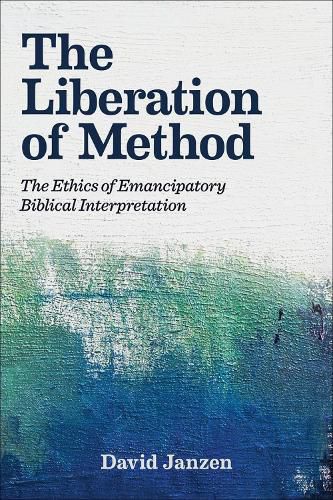Readings Newsletter
Become a Readings Member to make your shopping experience even easier.
Sign in or sign up for free!
You’re not far away from qualifying for FREE standard shipping within Australia
You’ve qualified for FREE standard shipping within Australia
The cart is loading…






The field of biblical studies has championed the historical-critical method as the only way to guarantee objective interpretation. But in recent decades, women, people of color, scholars from the Two-Thirds World, and members of the the LGBTQIA+ community have pursued hermeneutical approaches that provide interpretations useful for marginalized communities who see the Bible as a resource in their struggles against oppression. Such liberative strategies remain at the margins of the field. The Liberation of Method argues that this marginality must end, and that liberative methods should become the central methods of biblical studies.
The first part of the book draws upon the hermeneutics of philosophical pragmatism to argue that, because readers are responsible for the interpretation, there is no necessary connection between the meanings they produce and the ones ancient authors may have intended. As a result, the historical-critical method, which prioritizes the study of the ancient contexts of biblical writings, becomes an optional rather than a necessary aspect of interpretation. The second part of The Liberation of Method argues that if we truly hope to create an ethical academic field, more privileged scholars and students must see their minoritized colleagues as the leaders in the field, as models of the ethical liberative standards of interpretation.
$9.00 standard shipping within Australia
FREE standard shipping within Australia for orders over $100.00
Express & International shipping calculated at checkout
Stock availability can be subject to change without notice. We recommend calling the shop or contacting our online team to check availability of low stock items. Please see our Shopping Online page for more details.
The field of biblical studies has championed the historical-critical method as the only way to guarantee objective interpretation. But in recent decades, women, people of color, scholars from the Two-Thirds World, and members of the the LGBTQIA+ community have pursued hermeneutical approaches that provide interpretations useful for marginalized communities who see the Bible as a resource in their struggles against oppression. Such liberative strategies remain at the margins of the field. The Liberation of Method argues that this marginality must end, and that liberative methods should become the central methods of biblical studies.
The first part of the book draws upon the hermeneutics of philosophical pragmatism to argue that, because readers are responsible for the interpretation, there is no necessary connection between the meanings they produce and the ones ancient authors may have intended. As a result, the historical-critical method, which prioritizes the study of the ancient contexts of biblical writings, becomes an optional rather than a necessary aspect of interpretation. The second part of The Liberation of Method argues that if we truly hope to create an ethical academic field, more privileged scholars and students must see their minoritized colleagues as the leaders in the field, as models of the ethical liberative standards of interpretation.